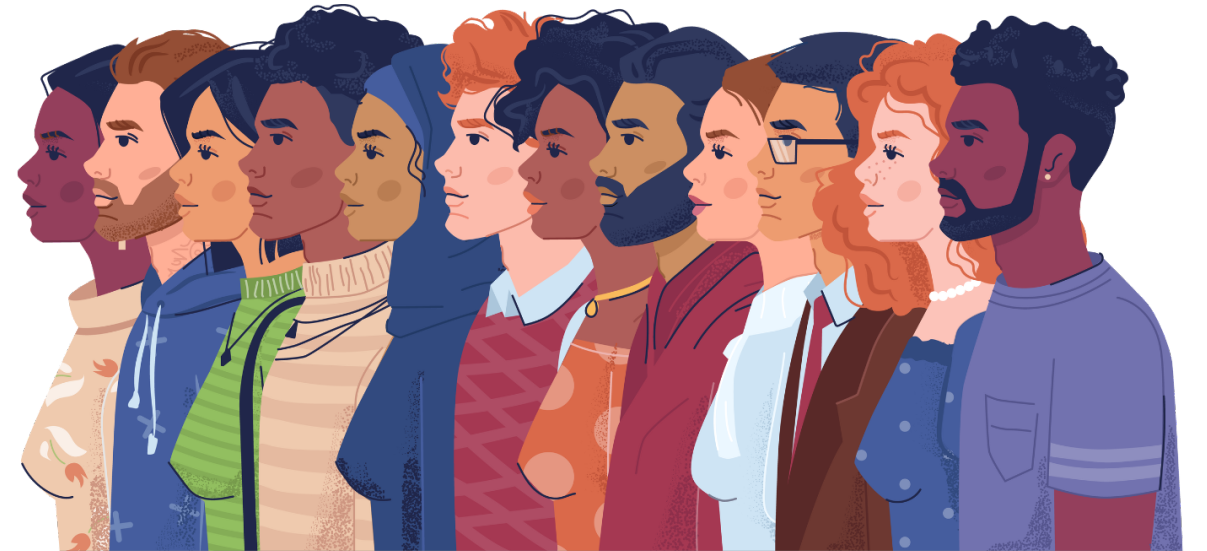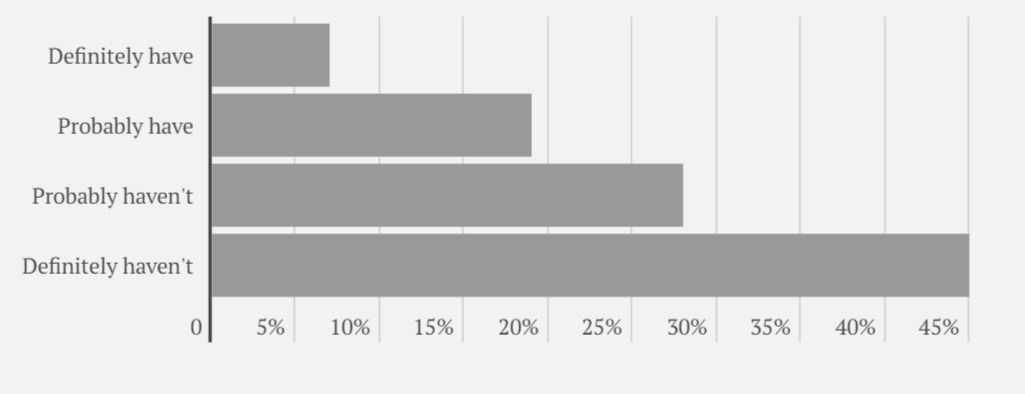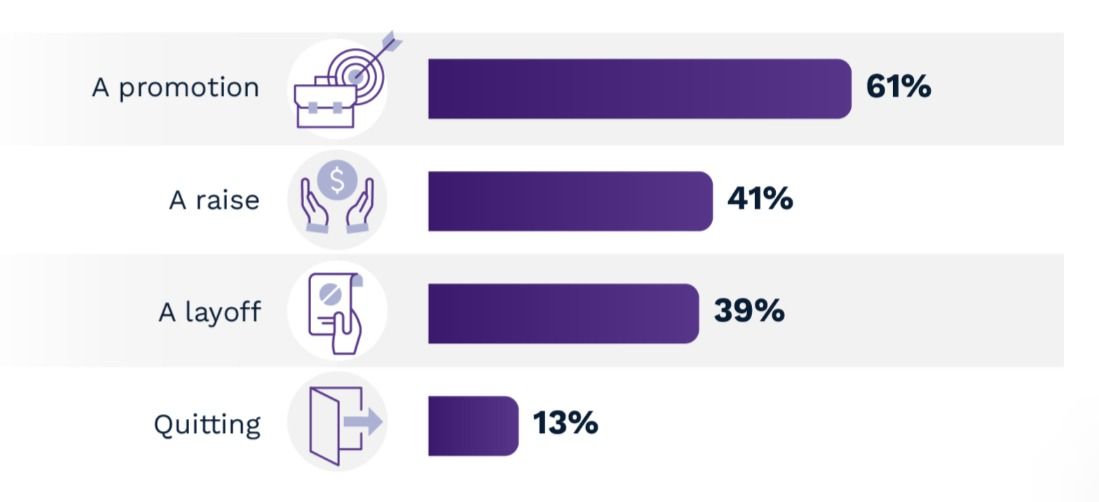71% of Obese Employees Believe They Are Discriminated Against at Work
People identifying themselves as overweight, obese, or unattractive believe it affects their salaries and promotions.

- Discrimination can appear in many forms in the workplace. One such type is based on a person’s physical appearance.
- So, how does it affect an employee’s mental health and career? Within and Resume Builder conducted two separate studies to find the answers. The following are a few insights.
Discrimination in the workplace can appear in many forms and for many reasons. It can be due to race, color, religion, health, etc. One such problem is discrimination due to body type or weight. Discrimination based on a person’s weight, height, or attractiveness is not covered under federal law. Yet, this is a real problem that can lead to the victim facing several mental health issues.
So, are employees facing discrimination due to their body type, how does it affect them, and how can companies address it? The following are a few insights from recent studies by Resume Builder and Within. The article also touches on how organizations can use technology to address discrimination.
Employees Have Been Discriminated Against Because of Bodyweight
About 26% of Resume Builder’s respondents said they were definitely or probably discriminated against at work due to their body weight. Further, slightly more men than women (28% vs. 25%) faced discrimination due to their weight. About 71% of those who self-identified as obese witnessed weight discrimination, and 53% of those who self-identified as overweight saw discrimination.

Source: Resume Builder report
Do employees believe they have been discriminated against due to body weight?
It is not only overweight or obese people who face discrimination but also underweight employees. About 42% of this group said they faced discrimination.
People Are Also Discriminated Against Depending on Their Physical Attractiveness and Height
About 23% of respondents believed they definitely or probably had been discriminated against due to their ‘unattractive physical appearance.’ This time, slightly more women than men (24% vs. 22%) experienced this type of discrimination. Interestingly, people who felt they were attractive also believed they faced discrimination. About 27% of women who self-identified as very or somewhat attractive said they faced discrimination. About 14% of men who considered themselves somewhat or very attractive said the same.
Regarding height, 12% of the respondents said they had been discriminated against because of their height. More men than women (15% vs. 10%) said they faced discrimination because of their height.
Body Type Discrimination Affects Mental Health
Both studies found that discrimination against people based on their physical appearance has affected them in various ways. For starters, 58% of Resume Builder’s study’s respondents who faced discrimination due to their physical appearance said they lost motivation. About 40% said it affected their mental health, and 26% said their productivity was reduced. About 22% affected also said discrimination led them to change their appearance. About 68% of remote employees from Within’s study said they try to hide their full body on video calls.
Of those who currently don’t work full-time from the office (i.e., remote or hybrid), 53% of respondents from the Resume Builder study didn’t want to increase the number of hours they worked from the office. For 56%, this was at least partly due to concerns about how their colleagues would perceive their physical appearance.
Discrimination Impacted Promotions and Salaries
Besides mental health, discrimination also directly impacted many of these employees’ careers. About 19% of the victims, according to the Resume Builder study, said they didn’t receive a promotion, while 15% didn’t receive a salary hike, and 13% didn’t receive a job. About 14% also said they had to switch jobs, and 4% said they were wrongly terminated.
The Within study revealed similar findings. Employees with larger bodies were 32% less likely than others to have been promoted in the last year. Further, they were 21% less likely to receive a salary hike. If they got one, it was 7% less than what others received, on average.
Several respondents felt their body size had to do with their bosses’ work decisions. About 61% felt it made them miss their promotion. About 41% felt they didn’t get a pay hike, and 39% felt they were laid off due to their body size. Over 10% said they decided to quit the job due to their body.

Source: 2023 Within Health Survey
Percentage of overweight employees who felt their body types negatively affected the above
Several Employees Have Resorted To Unhealthy Ways To Manage Stress
Employees usually feel stressed due to work pressures. However, bias and discrimination, especially due to body type, can lead to additional mental stress. So, how are employees managing stress?
While the good news is that many employees facing discrimination due to body type have found healthy ways to manage stress, the bad news is that a considerable percentage have resorted to unhealthy ways. For example, according to Within’s study, 48% listened to music, 42% exercised, 39% meditated, and 39% resorted to reading to manage stress. At the same time, 28% resorted to eating less, 27% ate more, and 24% resorted to substance abuse to manage stress. Unfortunately, only 6% went to therapy.
That said, it is interesting that people with larger bodies were 10% more likely than others to have healthy stress management habits. And 72% of those with larger bodies were as likely as others to meet deadlines consistently.
See more: Invest in Data and Analytics To Drive DEI Program Results
Combating Discrimination at the Workplace Using Technology
Body size issues can lead to stress due to personal insecurities, unspoken biases, or discrimination. To overcome bias and discrimination, companies should make their work culture inclusive and friendlier. Further, they should consider using technology to overcome bias.
Technology can be used in many ways to address discrimination. For example, organizations can create a mobile app that allows employees to report discrimination and streamlines the resolution process. This is especially helpful when individuals feel they don’t feel heard. Technology can also be used to address the policies and practices that lead to discrimination. Further, technology in the form of bots can be used to ask unbiased questions and gather more information and data, which can be used to make better decisions.
By developing the necessary policies and practices and incorporating the right technology, organizations can address discrimination of any kind and improve the overall work environment.
This article, written by Karthik Kashyap, appeared first on Spiceworks.
How can we help? Let's Chat!
We have been simplifying payroll for clients nationwide since 2009.

